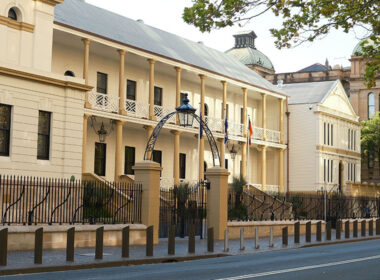In a major step forward for victim-survivors of domestic and sexual abuse, the NSW Government has committed to criminalising coercive control in current and former intimate partner relationships.
NSW Attorney General Mark Speakman announced the decision in December as part of the government’s response to recommendations from the Joint Select Committee on Coercive Control. The committee had been established in 2020 to explore whether to criminalise the conduct after England and Wales did so in 2015, and recent tragic events in Australia such as the murder of Hannah Clarke and her three children placed increasing focus on how controlling behaviour can be a precursor to physical violence.
“No person deserves to live in fear, and it is part of our responsibilities in government to uphold the safety and human dignity of all of our citizens,” Speakman said.
“We’re supporting, or supporting in principle, 17 of the Committee’s 23 unanimous recommendations. This includes consulting on and introducing a stand-alone offence to address coercive control, as well as possible amendments to other existing laws.
“I’m grateful to the frontline services, peak bodies, experts, academics and those in the criminal justice system for their vital contributions. I commend especially the extraordinary bravery of the victim-survivors who contributed to the Inquiry.”
Criminal lawyer Angela Cooney, the National practice Director at Armstrong Legal and an Accredited Specialist in Criminal Law, welcomed the implementation of an offence to capture coercive control. However she said, “as always, the devil will be in the detail”.
“The relevant legislative provisions will need to be carefully drafted to ensure the offence is not so broad that it is capable of capturing conduct which it is not intended to criminalise,” Cooney told LSJ.
Cooney said there were several challenges to consider in drafting the legislation including whether the offence requires specific intent or recklessness, proof of actual harm or fear, how the offence is defined and what kinds of acts will be captured.
“In practice, it is very common to encounter offenders who are genuinely unaware that their conduct amounts to an offence, or indeed in the context of domestic violence, that their conduct is inappropriate.
“This is a clear issue that needs to be addressed at a community level, which may be assisted if the offence does not require specific intent.”
Minister for Mental Health and Women Bronnie Taylor said domestic abuse can take many forms.
“Coercive control is simply unacceptable. It involves patterns of abuse that have the cumulative effect of denying victim-survivors their autonomy and independence. This can include physical, sexual, psychological, or financial abuse,” Taylor said.
The Department of Education will also review school programs about respectful relationships to guarantee they include content about coercive and controlling behaviour. Comprehensive training on coercive control will also be introduced across Government systems and communities.
The 2021-22 Budget provided enhanced funding for this work, including an extra $60 million over two years to strengthen frontline services in domestic and family violence.
For confidential advice, support and referrals, contact: 1800 RESPECT (1800 737 732), the NSW Domestic Violence Line (1800 65 64 63), NSW Rape Crisis (1800 424 017), or Men’s Referral Service (1300 766 491). Solicitors in NSW may also access the free Solicitor Outreach Service (SOS) for confidential counselling on 1800 592 296.




